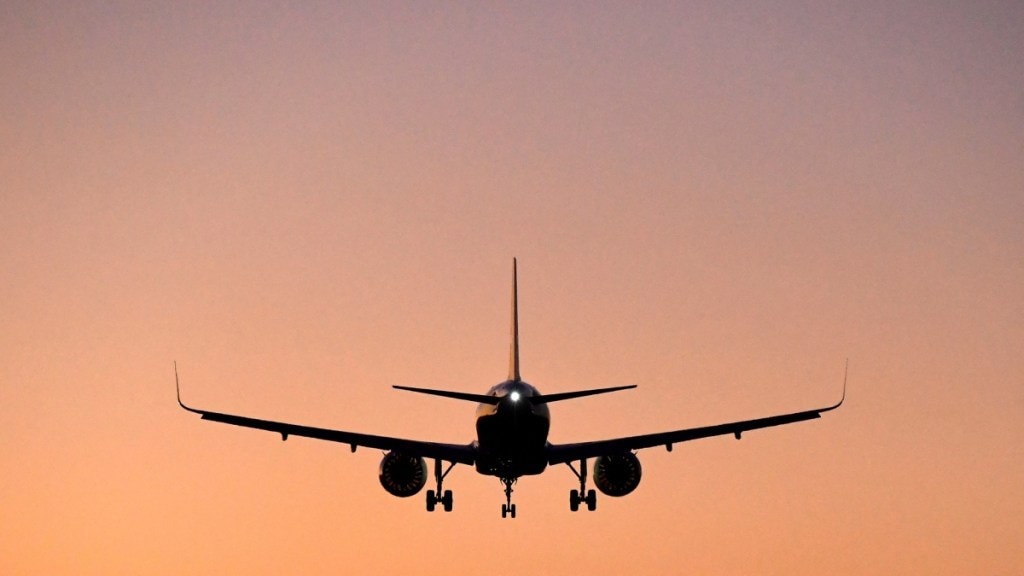Since last year, global carriers have been getting notices from the Directorate General of GST Intelligence over alleged tax evasion. Now they have threatened to exit the Indian market. Swaraj Baggonkar explains why they are upset
l What is the reason for their angst?
FOREIGN CARRIERS HAVE been on the radar of the Directorate General of GST Intelligence (DGGI) since October 2023 for alleged tax evasion on import of services. The DGGI, the law enforcement agency formed under the finance ministry for fighting tax evasion, has said that services imported by the local office from the parent entity such as maintenance of aircraft, leasing and rental, staff cost and aircraft fuel are liable to GST, which the airlines have allegedly not paid.
Airlines that have received summons include British Airways, Lufthansa, Singapore Airlines, Etihad Airways, Thai Airways, Qatar Airways, Emirates, Oman Airlines, Air Arabia and Saudia (formerly Saudi Arabia Airlines). According to media reports, the investigations were carried out by Meerut and Mumbai zones of the DGGI earlier this year. Carriers such as British Airways, Singapore Airlines and others have acknowledged the action taken by the DGGI and are cooperating with the authorities. But they have registered their displeasure with the International Air Transport Association (IATA), the representative body for around 300 global carriers.
l What is the warning issued by IATA?
FOREIGN AIRLINES ARGUE that branch offices in India do not play any role in crucial operations such as contracting for aircraft leases, crew, pilots, fuel and maintenance. IATA has warned that the complexities of the country’s tax system could even force them to exit the market. On the sidelines of the 80th annual general meeting, IATA director Willie Walsh raised concerns of double taxation and the intricacies of tax rules prevalent in India.
“We argue very strongly that there is a global tax structure in place, which works and works well, and changing that tax structure does not necessarily represent an opportunity; some people believe that through this they will generate additional tax revenues which may not be the case because as a result of this, you could see an exit from the market,” Walsh said.
The global organisation has called for ‘right policies’ to be exercised by India to unlock the country’s potential.
What is the share of global carriers in the Indian aviation market?
INDIA HAS A growing aviation market and its domestic air traffic is already the third largest in the world. Led by budget carrier IndiGo, the market is witnessing a boom with orders for more than 1000 aircraft pending with plane makers. These include both narrow body and wide body type of aircraft. The latter ones are mostly used on international routes. Acknowledging the potential of the Indian aviation market, foreign airlines have been pushing for an upward revision in the bilateral air service rights. The share of foreign carriers in the international air traffic market to and from India is 55%. Indian carriers – Indigo, Air India, Vistara, Air India Express and SpiceJet – have managed to gain market share in this space, as per data shared by the Directorate General of Civil Aviation till December 2023. As against 72 foreign carriers, just five Indian carriers together fly 45% of the international traffic to and from India.
l Can they afford to exit India?
A PARTIAL OR full withdrawal in the number of flights by any carrier throws it open to the risk of getting replaced by its rivals. Not only is the market share compromised, but the rival will benefit from better prices since it has a better control on that route with reduced competition.
But contrary to perception, foreign carriers have only added new connections and multiple new routes to and from India.
Lufthansa recently added the Hyderabad-Frankfurt route to its list, expanding its capacity by 14% compared to pre-Covid-19 levels. British Airways will start a new daily flight between Delhi and London (Heathrow), thus taking its weekly tally to 63 flights across five cities. Etihad is starting flights from Jaipur and increasing the number of flights from Thiruvananthapuram.
l What is the way forward?
IATA HAS SAID that all the operations to and from India are decided, controlled and operated by airlines’ head offices and it is not legally accurate to attribute any strategic and operational risks and functions to the branch offices in India.
Since import of services by the branch office from the head office is a unique issue for the airlines industry as well as the shipping industry, clarification on taxation is necessary. Media reports say that the matter has been referred to the GST Council. Tax experts claim that it may not be possible to determine the value of the imported service on an actual basis.
This action by the DGGI could be viewed negatively on the international aviation stage. India in the recent past suffered a downgrade to negative in compliance outlook by the Aviation Working Group.
